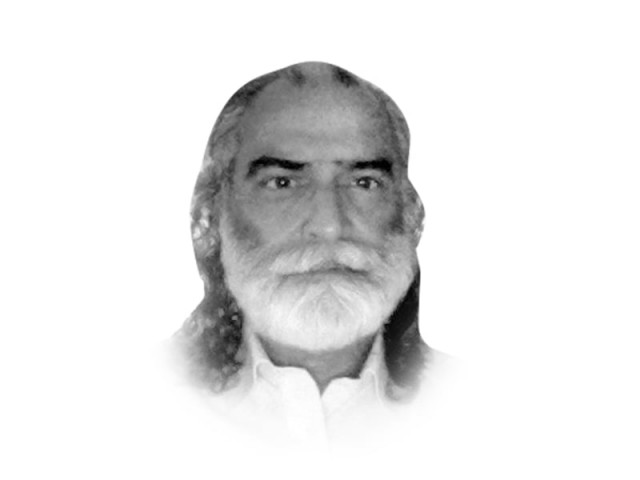Issues in by-elections
A major role of MPs is to represent their constituency. Law disenfranchises electorates when they vacate their seat.

Sarwar Bari works with Pattan Development Organisation and can be reached at bari@pattan.org
It is a product of paranoid political leadership and has been causing financial loss and weakening our democracy.
Rest of 16 constituencies where by-election will take place became vacant due to the following reasons: in nine contesting candidates died, terrorists killed three sitting MPs, election authorities disqualified two returned candidates and declared election results null and void in two. Therefore, except six, all the forthcoming by-elections are result of a bad law and poor governance (i.e., assassination of candidates/MPs, corruption and malpractice during polling). Data sets of past ten general elections, re-polling and numerous by-elections too prove this fact. It is important to mention that during 2008-13, more than 100 by-elections took place, while in 2013 we are having 42 by-elections within four months of the general election. We might have set a world record.
Lets look at the expense side too. The total cost of holding the May general election was about Rs6 billion. This means the average cost per NA constituency was nearly Rs22 million. Therefore, roughly Rs600 million will be needed to hold 42 by-elections. The ECP should charge at least Rs20 million per vacated seat from those leaders who have vacated the seats. Knowing very well that political leadership will never pass any law that goes against their selfish interest, yet I would like to appeal to the parliament to amend the Article 223 in order to stop practice of contesting elections from multiple constituencies.
Besides money, there are some ethical and representation issues that stems from this law. First, candidates who contest from multiple constituencies, very often lied to voters of all the constituencies about retaining seats of their area. When he breaks his promise and vacates these seats, it not only lowers the trust in political leadership but also alienates the electors from electoral process. Second, one of the major roles of an MP is to represent his/her constituency. The current law disenfranchised the electorates of these constituencies, the moment he vacates the seats. This is discriminatory practice and goes against the spirit of the Constitution of Pakistan. Third, the electors are unnecessarily forced to go through another polling within few months. Fourth, by-elections promote corrupt practices more than the general elections. Development funds are diverted from other areas to by-election constituencies and bureaucracy is coerced to serve interests of political masters. Due to these factors very often turnout in by-elections remains lower than the general elections as the electors know the outcome in advance. This situation not only politicises bureaucracy but also affects its performance, as a result rule of law, which is already in precarious condition further worsens. When lawmakers become lawbreakers, governance further deteriorates and nations fall.
Regarding election observation, I would often say that there are three kinds of people: first, driven by their ethics; second, follow procedures due to fear of reprisal; third, driven by interest whether someone is watching them or not. I would often say that the majority of people in our country fall under the second category. I had thought presence of media and observers would deter them from wrongdoing. I was wrong. They reportedly blatantly violated the law and procedures. Even, many election officials dared to issue statement of the vote count on blank papers instead of on official Form XIV and tampered with the counting too. Many Returning Officers and District Returning Officers reportedly changed the Election Commission polling scheme and did not bother to inform the ECP. The whole electoral process was hijacked with impunity. District Election Commissioners were completely marginalised and cornered. The ECP writ on the polling day was reportedly practically restrained within its four walls. Karachi presented its worst form. Despite presence of CEC in Karachi, goons did not allow polling in many polling stations there until 2pm, according to media reports.
Independent observers, media, and civil society measure credibility of an election by using exit polls and proper checklists. But a fundamental yardstick is how many contesting parties/candidates accept or reject election results and file petitions. The polling on 11 May triggered massive protests all over the country. Almost all contesting parties somewhere in the country protested against the polling and counting. About one-third contesting candidates approached the election authorities with complaints, while hundreds of them have already filed petitions. This qualifies the May polling to be treated as controversial election in the history of Pakistan. Let’s hope, by-elections on 22nd August are not a replay of 11th May.
We can’t eliminate by-elections as it is an integral part of democratic process but we must help eradicate weeds. For public policy development, it is therefore imperative to address the above-mentioned two root causes separately. Launch a campaign to amend Article 223. Moreover, civil society in collaboration with media should identify those who steal voters’ verdict and shame them. Since, rigging gets swollen during by-election, be ready to prevent it now. Let’s liberate ECP from the clutches of partisan vultures.
Published in The Express Tribune, July 10th, 2013.
Like Opinion & Editorial on Facebook, follow @ETOpEd on Twitter to receive all updates on all our daily pieces.













COMMENTS
Comments are moderated and generally will be posted if they are on-topic and not abusive.
For more information, please see our Comments FAQ